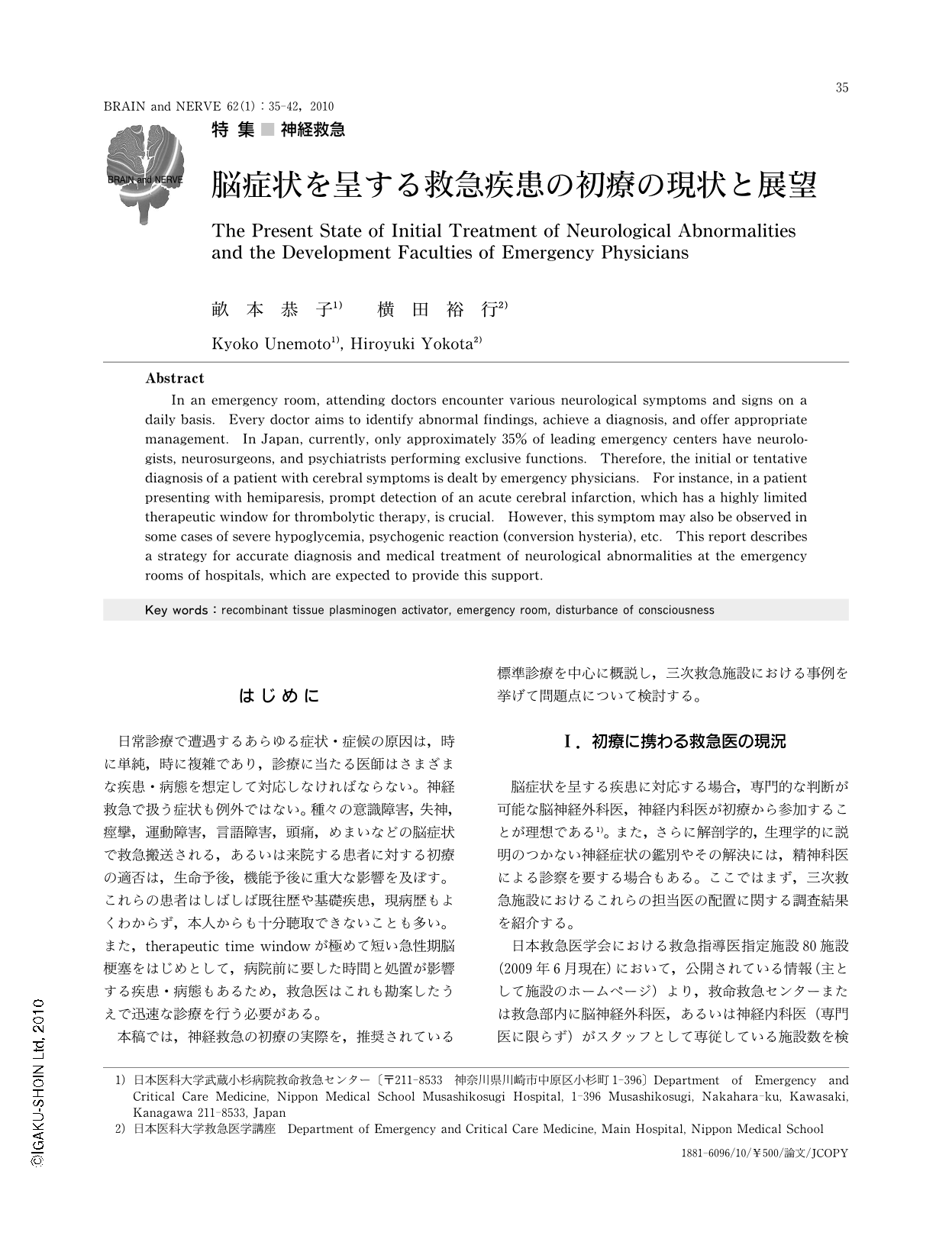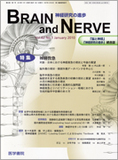Japanese
English
- 有料閲覧
- Abstract 文献概要
- 1ページ目 Look Inside
- 参考文献 Reference
はじめに
日常診療で遭遇するあらゆる症状・症候の原因は,時に単純,時に複雑であり,診療に当たる医師はさまざまな疾患・病態を想定して対応しなければならない。神経救急で扱う症状も例外ではない。種々の意識障害,失神,痙攣,運動障害,言語障害,頭痛,めまいなどの脳症状で救急搬送される,あるいは来院する患者に対する初療の適否は,生命予後,機能予後に重大な影響を及ぼす。これらの患者はしばしば既往歴や基礎疾患,現病歴もよくわからず,本人からも十分聴取できないことも多い。また,therapeutic time windowが極めて短い急性期脳梗塞をはじめとして,病院前に要した時間と処置が影響する疾患・病態もあるため,救急医はこれも勘案したうえで迅速な診療を行う必要がある。
本稿では,神経救急の初療の実際を,推奨されている標準診療を中心に概説し,三次救急施設における事例を挙げて問題点について検討する。
Abstract
In an emergency room,attending doctors encounter various neurological symptoms and signs on a daily basis. Every doctor aims to identify abnormal findings,achieve a diagnosis,and offer appropriate management. In Japan,currently,only approximately 35% of leading emergency centers have neurologists,neurosurgeons,and psychiatrists performing exclusive functions. Therefore,the initial or tentative diagnosis of a patient with cerebral symptoms is dealt by emergency physicians. For instance,in a patient presenting with hemiparesis,prompt detection of an acute cerebral infarction,which has a highly limited therapeutic window for thrombolytic therapy,is crucial. However,this symptom may also be observed in some cases of severe hypoglycemia,psychogenic reaction (conversion hysteria),etc. This report describes a strategy for accurate diagnosis and medical treatment of neurological abnormalities at the emergency rooms of hospitals,which are expected to provide this support.

Copyright © 2010, Igaku-Shoin Ltd. All rights reserved.


